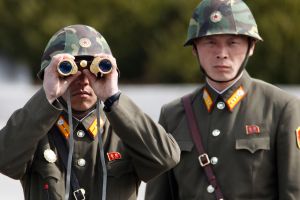The American public is now less concerned about the threat posed by North Korea.
Introduction
North Korea’s promise to deliver an end-of-year “Christmas gift” went unfulfilled amid signs that the United States wanted to continue diplomacy with the Kim regime. This has led to a continued lull in tensions between the two countries, although actual progress in negotiations remains elusive. With that lack of progress, President Donald Trump has reportedly told his advisers that he does not want another summit with Kim Jong Un before the US presidential election in November.
In a survey conducted from January 10–12, 2020, the American public is now less concerned about the threat posed by North Korea, but little else has changed in terms of Americans’ policy preferences to deal with North Korea’s nuclear program. Majorities still oppose airstrikes against North Korea and support long-term military bases in South Korea.
Key Findings
- Half (52%) of the American public says North Korea’s nuclear program is a critical threat. That is the lowest mark since the question was first asked in 2015.
- Just 26 percent say a confrontation between South and North Korea is a critical threat. This is also a new low.
- One in ten (13%) cites North Korea as the country that poses the greatest threat to the United States. That is down from 59 percent in 2017.
- A clear majority (69%) says the United States should maintain its long-term military bases in South Korea.
- A majority (57%) oppose airstrikes against North Korea’s nuclear production facilities if no deal on denuclearization can be reached. Nearly seven in ten (67%) oppose sending US troops to destroy those nuclear production facilities.
Methodology
The analysis in this report is based on data from a 2020 Chicago Council survey of the American public on foreign policy, a project of the Lester Crown Center on US Foreign Policy. This omnibus survey was conducted January 10–12, 2020, by Ipsos using its large-scale online research panel, KnowledgePanel, among a weighted national sample of 1,019 adults 18 or older living in all 50 US states and the District of Columbia. The margin of sampling error for the full sample is ±3. The margin of error is higher for partisan subgroups.
Partisan identification is based on respondents’ answer to a standard partisan self-identification question: “Generally speaking, do you think of yourself as a Republican, a Democrat, an Independent, or what?”


